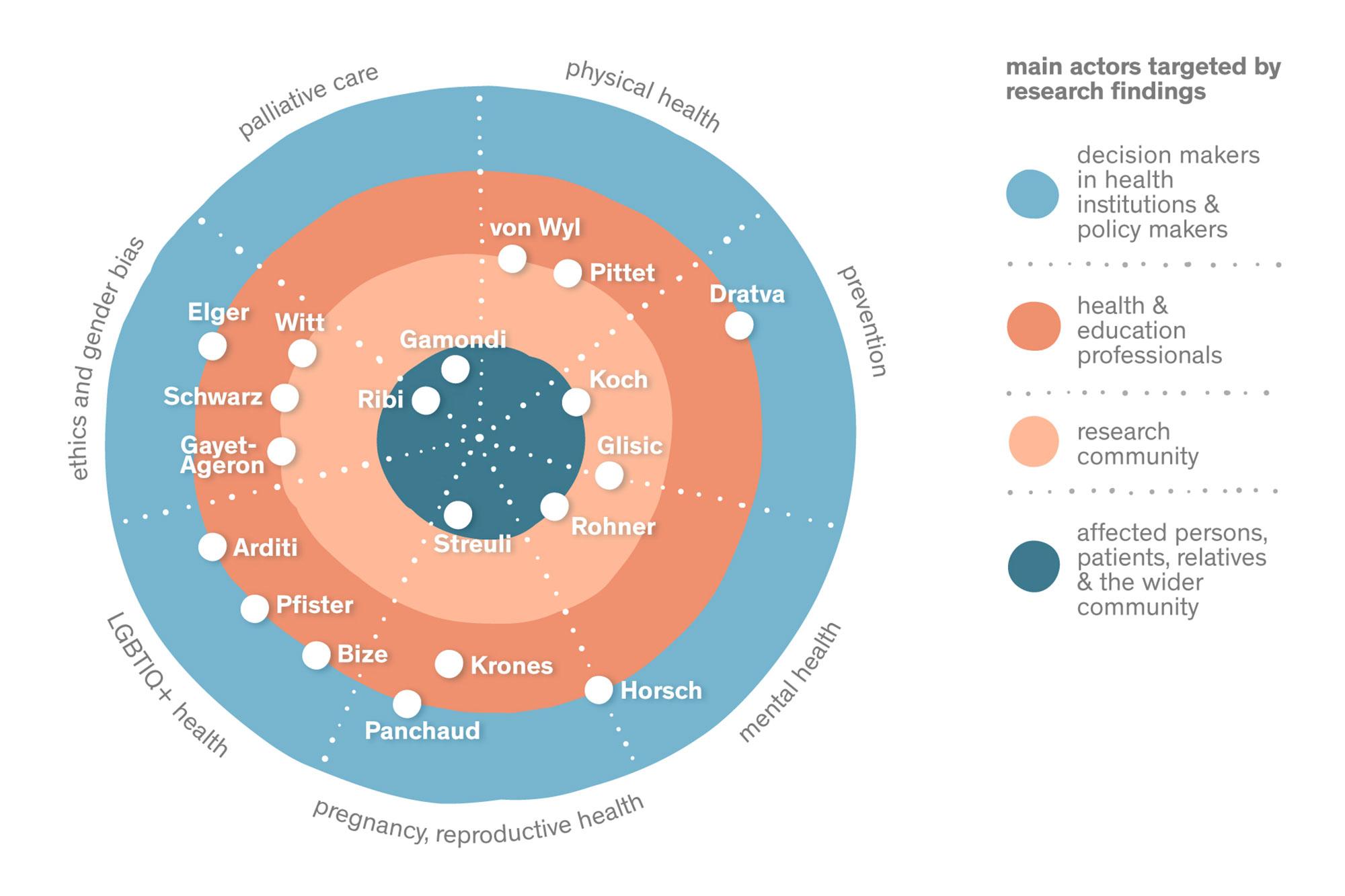Project landscape illustrates full spectrum of research programme

Summing up NRP 83 in just a few words is a challenge – after all, it encompasses 19 projects addressing a huge variety of different questions. Our new project landscape offers an insight into the topics covered by the programme.
Why do men access mental health services less frequently? What are LBGTQ+ young adults’ experiences of the Swiss healthcare system like? How can care and therapy for multiple sclerosis patients be improved with respect to gender? And what role does gender play in clinical decision making? The research projects that make up NRP 83 cover an incredibly broad spectrum of issues.
To make this diversity tangible, we have put together a project landscape showing at a glance what thematic issues the programme is focusing on. This landscape also illustrates how many projects operate at the intersection of multiple issues and address different target groups – from patients themselves to health and education professionals, and even political decision-makers.
The examples below offer an insight into four different projects which are representative of the breadth of programme topics:
Gender-specific care for multiple sclerosis (MS) patients
A team of researchers, headed up by Prof Viktor von Wyl, Dr Nina Steinemann, Dr Milo Puhan (UZH) and Prof Lia Bally (University of Bern), are analysing data from the Swiss MS Registry to identify gender differences in the progression and treatment of multiple sclerosis. The aim is to provide MS patients with more personalised and more equitable care.
Improving healthcare for LBGTQ+ young adults
Prof Andreas Pfister’s (ZHAW) project is looking into how LGBTQ+ young people aged 18 to 25 use the healthcare system – and what their experiences with it are like. The aim is to make their needs visible and to work with communities, health professionals and political actors to develop inclusive healthcare services.
Giving men’s mental health a boost
Why do fewer men access mental health services? That is the question Dr Shauna L. Rohner (OST – Eastern Switzerland University of Applied Sciences) is investigating – identifying social and communication obstacles along the way. The project will develop a digital tool to improve patient outreach and help GPs provide gender-sensitive care.
How gender impacts clinical decisions
PD Dr. Joëlle Schwarz (University of Lausanne) is investigating how gender, age, class or sexual orientation influence clinical decisions – such as diagnoses or the choice of therapy. By analysing historical and current practice, the project will produce concrete approaches for more equitable, gender-sensitive medicine.
These four projects are representative of the broad spectrum of issues NRP 83 is addressing. This research is shedding light on the needs and experiences of different groups, such as men, women and LGBTQ+ people, and of people with specific circumstances, such as adolescents, pregnant people, people living with chronic conditions and end of life patients, in relation to their health. It is also addressing key clinical and medical questions regarding clinical decision making, provision of care and more, thereby linking social perspectives to clinical relevance.
Detailed descriptions of these and the other 15 funded projects are available on the programme website.